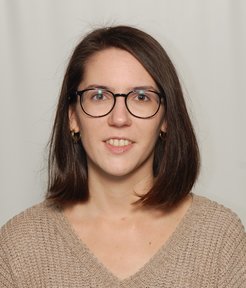Introducing one of our doctoral researchers: Tamara Miličić.
Research focused on proton exchange membrane water electrolysis (PEMWE)

Tamara Miličić joined the IMPRS/ OVGU PhD program in June 2020. She has heard about the program and the research group “Electrochemical Energy Conversion” from a colleague. She realized the IMPRS PhD program would be a great opportunity for her after finding out more about the opportunities it offers, and the research she can do here.
The scientific focus of Tamara Miličić is a combination of experiments and macroscopic modeling. This entails proton exchange membrane water electrolysis (PEMWE) where the aim is to identify different voltage losses and minimize them. Further, she works on the Nonlinear Frequency Response (NFR) method, a dynamic method for the analysis and diagnosis of nonlinear systems. Here, the NFR method is applied for studying PEMWE performance and the identification of different processes occurring during PEMWE operation. Lastly, she and her research group concentrate on the dynamic operation of PEMWE. They investigate the possibility of PEMWE performance improvement through dynamic operation, especially through forced periodic operation. The work on PEMWE is of high importance because it is considered a key technology for producing green hydrogen and has an important role in the substitution of fossil fuels with renewable energy sources.

All in one, Tamara Miličić is satisfied with the IMPRS program. She adds that her supervisors are invested and helpful and the collaboration with the other PhD researchers inside the program allows for more extensive research from different perspectives. She is also pleased with the options available for the soft skill courses. She has already attended two of them and is looking forward to attending more.
When Tamara Miličić first arrived in Magdeburg there were some difficulties due to the lack of German language knowledge. However, her German-speaking colleagues and friends were very kind and helped her whenever she needed help with communication.
Apart from her research, she said she finds Magdeburg is a very nice place to live. It is a peaceful city with a lot of green areas and parks. Further, it is rarely overcrowded and additionally, it offers a lot of opportunities for different activities. Due to its location, multiple touristic destinations are easily reachable. She adds that life in Magdeburg is quite affordable. The one thing she does not enjoy so much in the city is the wind, which seems to be present all over the year.
Due to starting her PhD research during the Corona pandemic, it was a bit difficult for her to interact with the other PhD researchers at the beginning. However, now it is different and she hopes it will be possible to realize more in-person events. She thinks that in-person talks, courses, seminars, and social events are the best and most important ways to connect with colleagues. Especially since they are all spread around the institute and university.
Thank you very much for sharing some insights about your research and your experience in the IMPRS/ OVGU PhD program as well as the city of Magdeburg. We wish you a lot of success with your further research and life here in Magdeburg!













